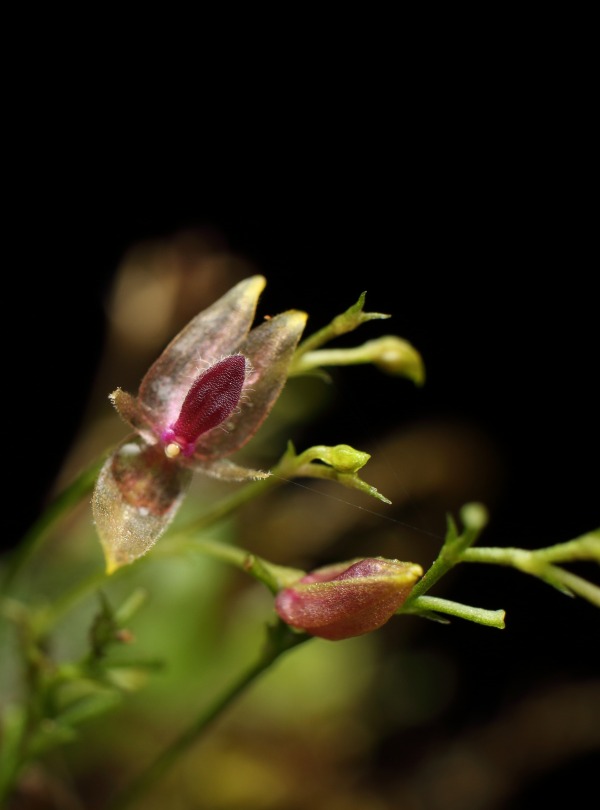An essential wild cat corridor in Honduras has been fragmented and stripped of its forests for plantations and cattle ranching.
-
Species at Risk
Copan Brook Frog (EN), Ocelot (LC), Jaguarundi (LC)
-
Carbon stored
8,319,6156 mT *
*(metric tons of CO2 equivalents) -
Partner
Panthera
-
75,000 Proposed Acres Conserved by
Designation
-
Project Cost: $1,090,000
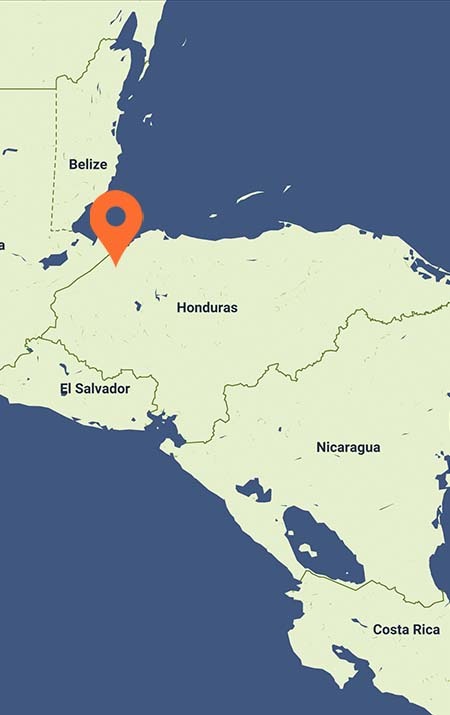
75,000
An essential wild cat corridor in Honduras has been fragmented and stripped of its forests for plantations and cattle ranching.
-
Species at Risk
Copan Brook Frog (EN), Ocelot (LC), Jaguarundi (LC)
-
Carbon stored
8,319,6156 mT *
*(metric tons of CO2 equivalents) -
Partner
Panthera
-
75,000 Proposed Acres Conserved by
Designation
-
Project Cost: £872,000

75,000
For ages, Jaguars and other wild cats have roamed a corridor that extends through once-virgin terrain from Mexico to Argentina. Near the border between northwestern Honduras and Guatemala, deforestation for coffee and cardamom plantations and cattle ranching have severely fragmented critical wildlife habitat along the corridor.
Rainforest Trust is supporting designation of a 75,000-acre area of this corridor identified by our partner, Panthera, in the Merendon Mountain range as the new national protected area, the Guanales Wildlife Refuge, in the Santa Barbara department (state). The newly identified area connects another Rainforest Trust project, the 46,681-acre Sierra Caral Amphibian Reserve in Guatemala, with the 54,910-acre Cusuco National Park in Honduras, contributing to a continuous block of more than 176,000 acres of protected habitat.
Header photo: Ocelot, by slowmotiongli
Explore the Wild Cat Corridor in Honduras
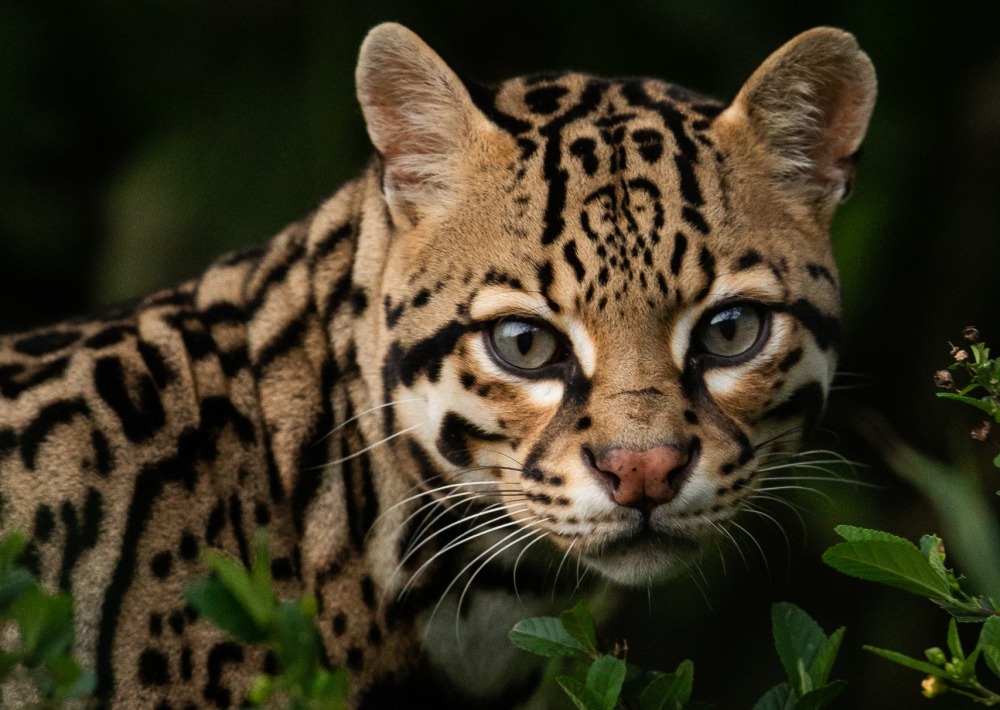
Ocelot, courtesy of Rodolfo Ayala Plata
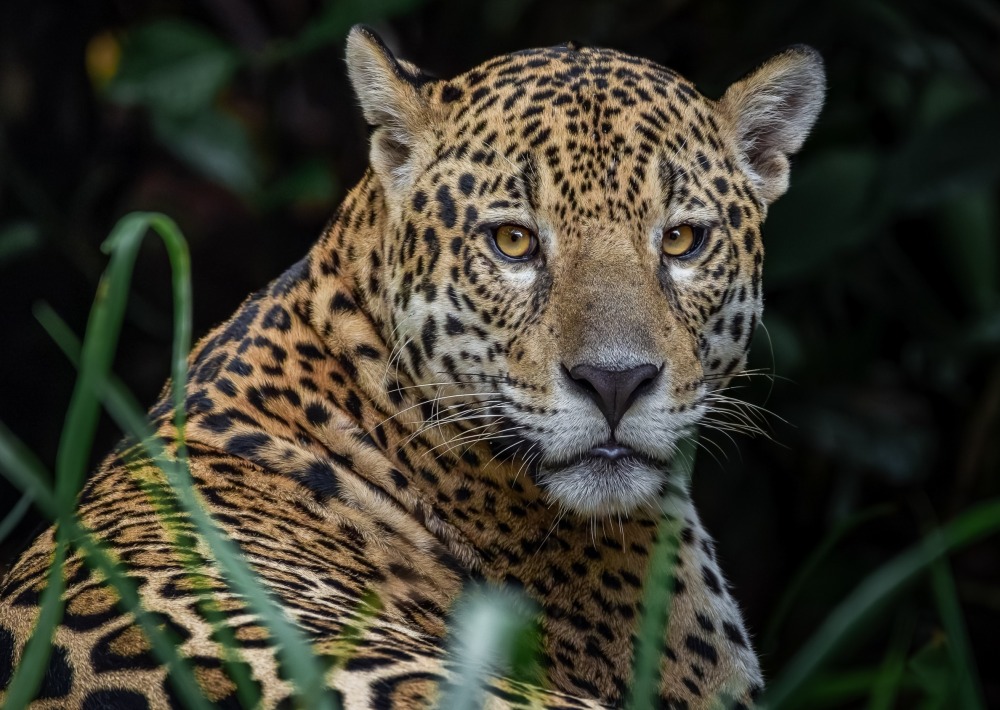
Jaguar, courtesy of Lucas N. Morgado
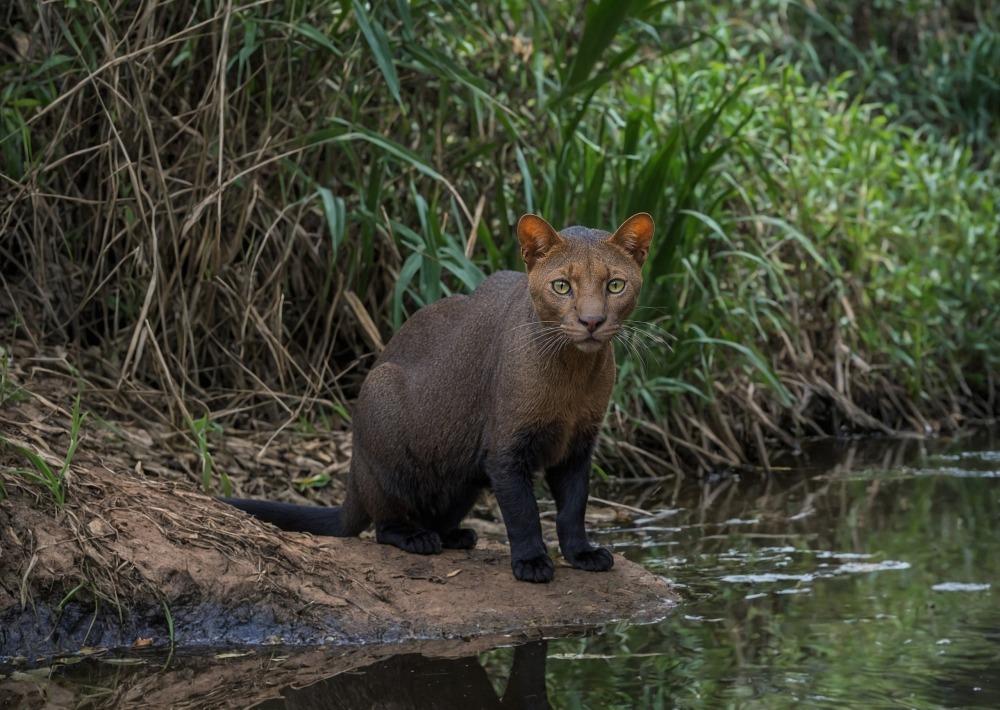
Jaguarundi, courtesy of mansorhh123
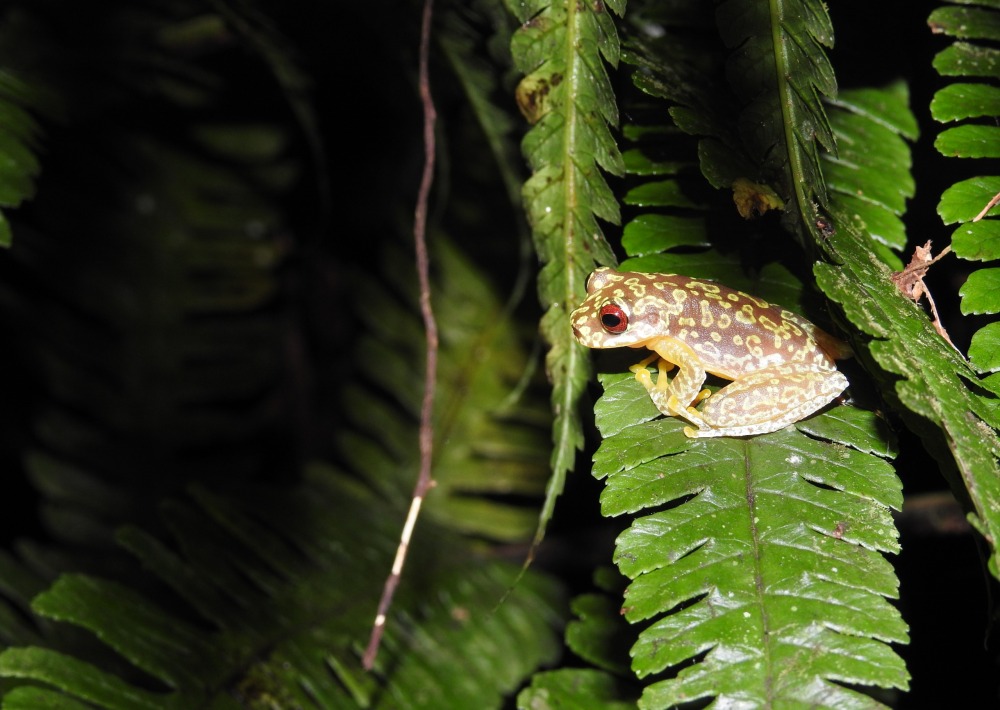
Copan Brook Frog, courtesy of Panthera
An age-old Jaguar corridor that runs from Mexico to Argentina will gain a continuous block of
protected acres.
Safeguard a Hotspot for Endemic Amphibians
Scientists recognize Cusuco National Park as the greatest hotspot for threatened endemic amphibian species in Honduras. The Endangered Copan Brook Frog and the Critically Endangered Honduras Spikethumb Frog are present in the proposed refuge. Given the proximity and similarity of the Guanales to Cusuco habitats, biological surveys of Guanales are expected to confirm the same rich diversity of reptiles and amphibians.
This project builds on Rainforest Trust’s broader strategy in the region, which supported creation of the Sierra Caral Amphibian Reserve in 2014 to safeguard five critically endangered amphibians.
Protect a Vulnerable Wild Cat Landscape
The portion of the Jaguar corridor that runs through northwestern Honduras is thought to be one of the most vulnerable to fragmentation. Ocelot and Jaguarundi are among the historically under-studied small cats frequently recorded within Cusuco National Park. The proposed Guanales refuge will allow wild cats to roam beyond the boundaries of the existing park.
Support Communities to Protect their Mountain Habitat
Communities will participate in decision making about land management through local Advisory Councils, and they will oversee existing farming and legal forestry activities to prevent further fragmentation of the landscape. The new refuge will have a strict protection zone, where productive activities will be restricted, and a multiple-use zone, where activities like small-scale agriculture will be allowed. All mining will be strictly forbidden. Community members will be hired and trained to serve in Guanales as park guards and tour guides, and to participate in biological surveys and wildfire prevention and control activities.
LEARN MORE ABOUT THIS PROJECT >>
Conservation work is critical, challenging, and can be costly. We work hard to ensure we raise only the funds needed for each project. In the rare case we raise more money than needed or a project comes in under budget, excess monies will be transferred to the Conservation Action Fund. This fund supports our important conservation work throughout the tropics.
Project Modifications
Rainforest Trust conducts extensive research and due diligence on each of the projects that we support, so that once a project is offered for public support we believe it will succeed. We work closely with our project implementers, offer support, and regularly monitor their progress. Given the nature of the work, projects may not progress exactly as intended and may be unable to meet all objectives. To respond dynamically to the needs of our project implementers and the realities of the landscapes in which they operate, Rainforest Trust expressly reserves the right to modify a project as it deems necessary, provided that donor intent is honored by ensuring that that the original project objectives are diligently pursued and that project funds continue to benefit the landscape and species identified in the project overview. Project modifications that we may need to make in certain circumstances include the specific project implementer, the size of the landscape to be protected, the type of protection to be afforded to the landscape, and the development of sustainability mechanisms.
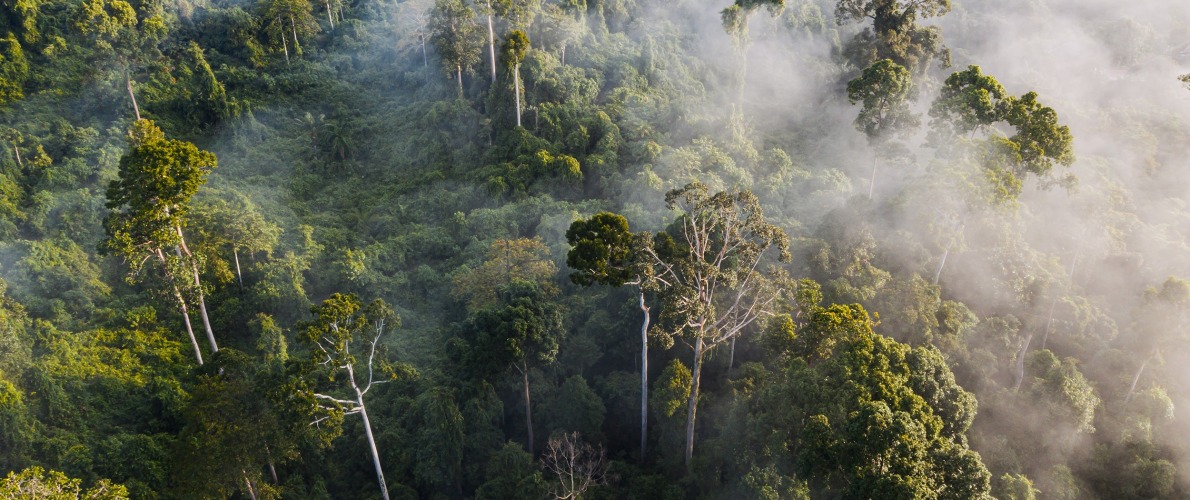
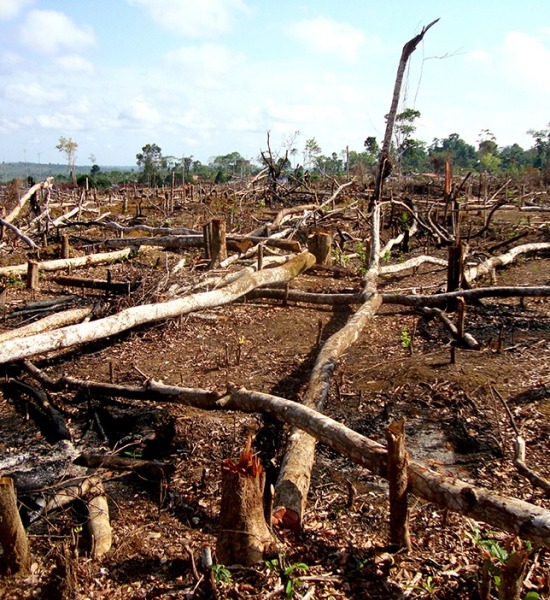
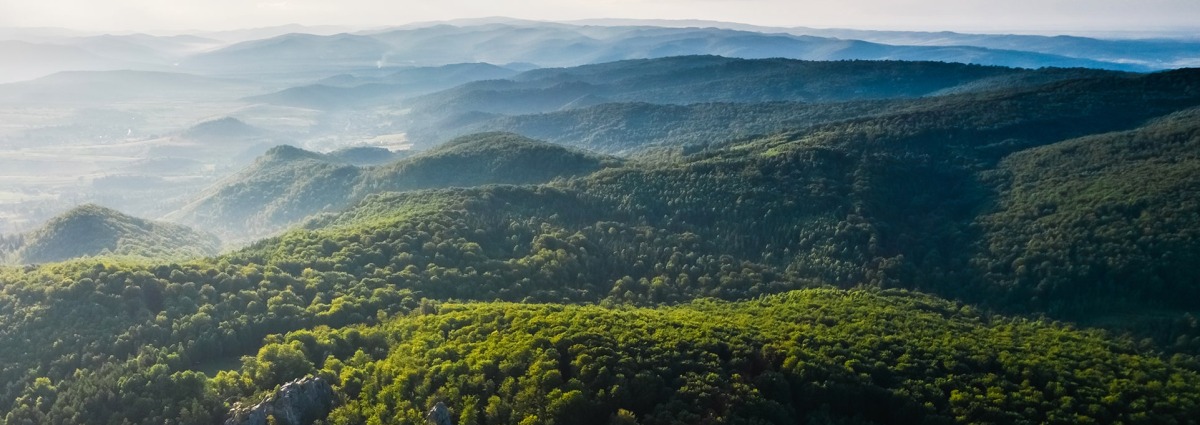
Partnering to Save Rainforest
Our partners’ ability to work with their governments and build strong connections with local communities ensures the successful implementation of our projects.
Learn More About This PartnerLearn More About This Partner
